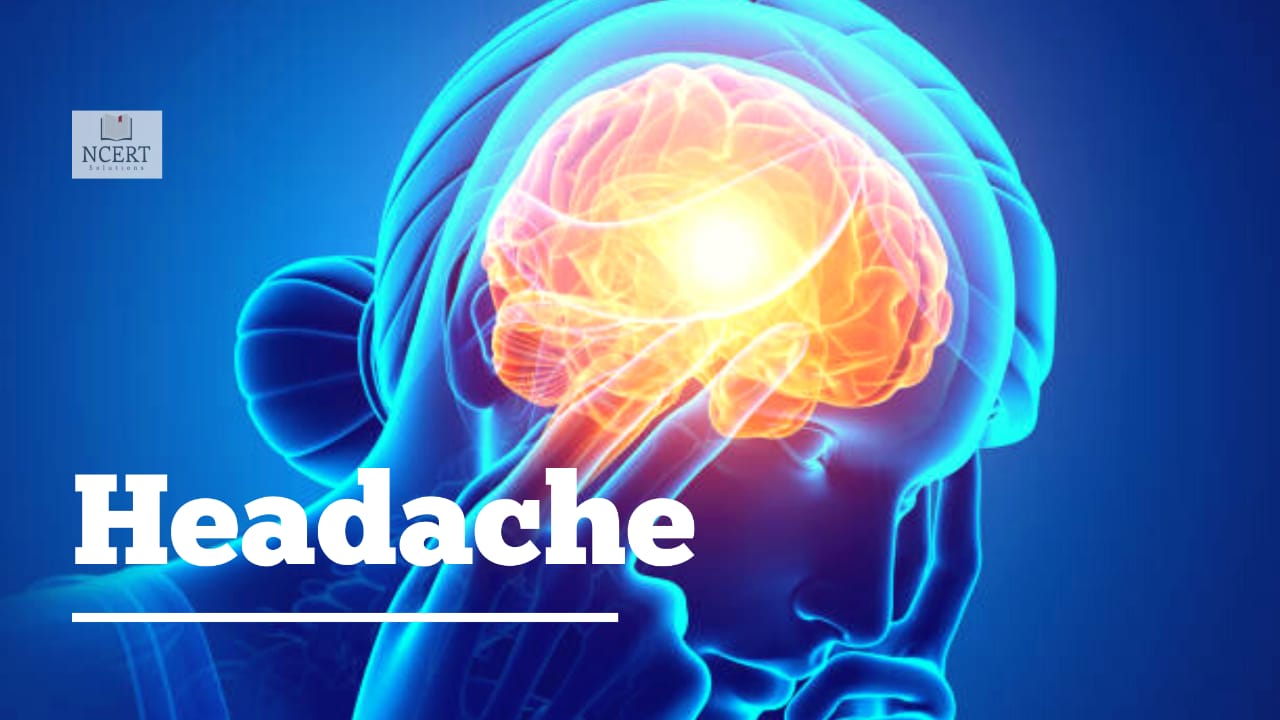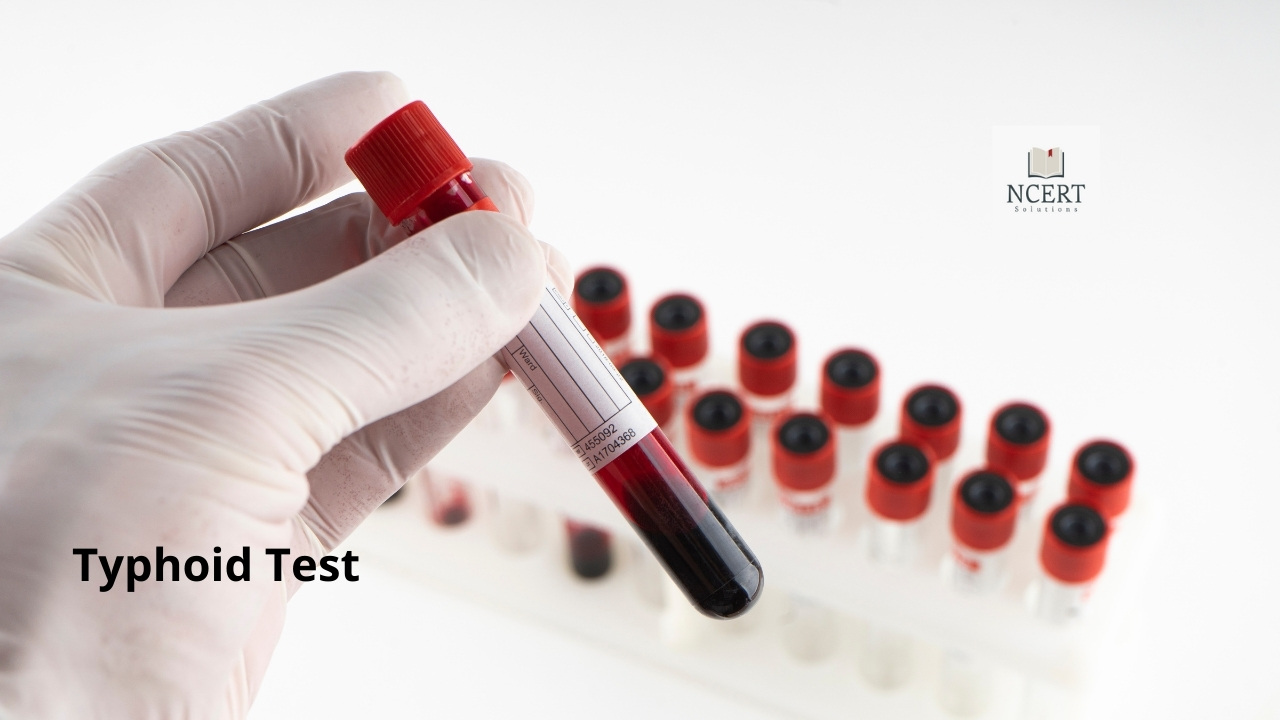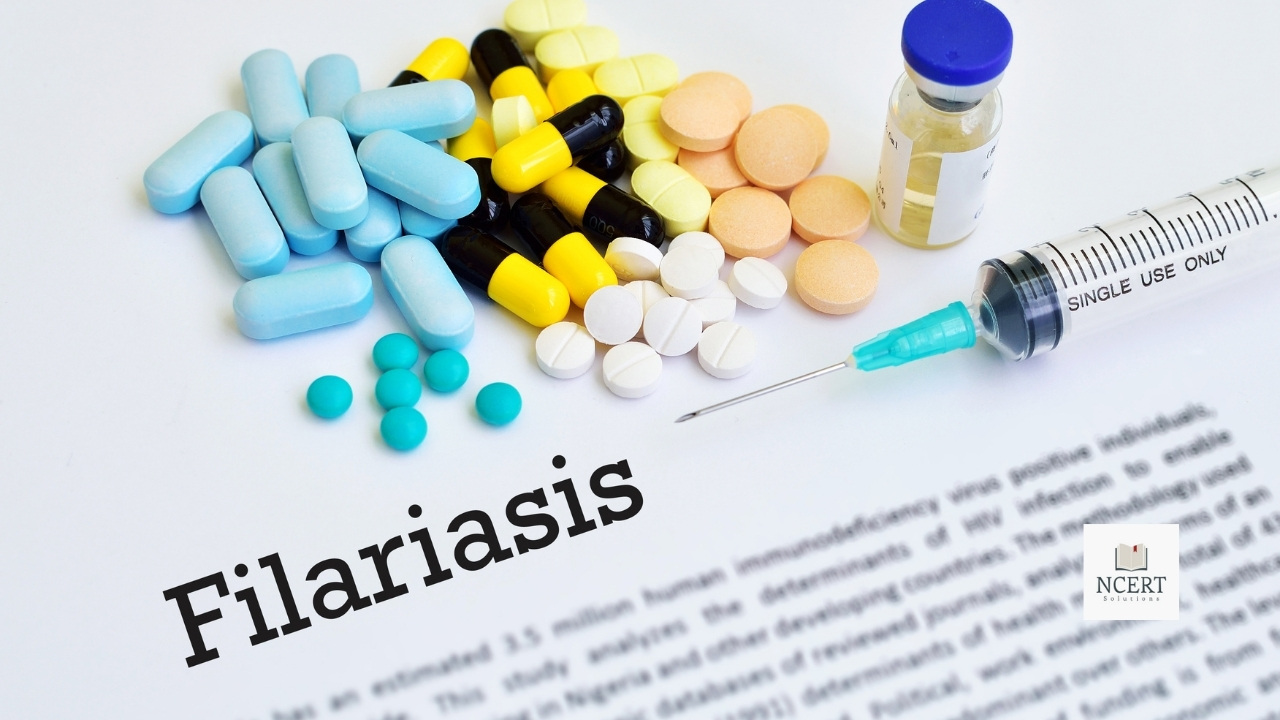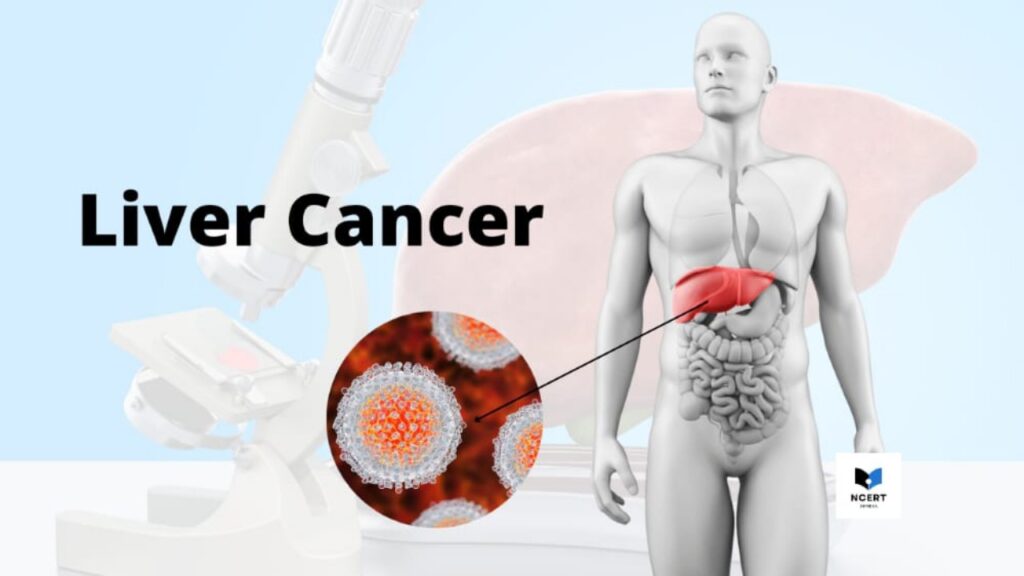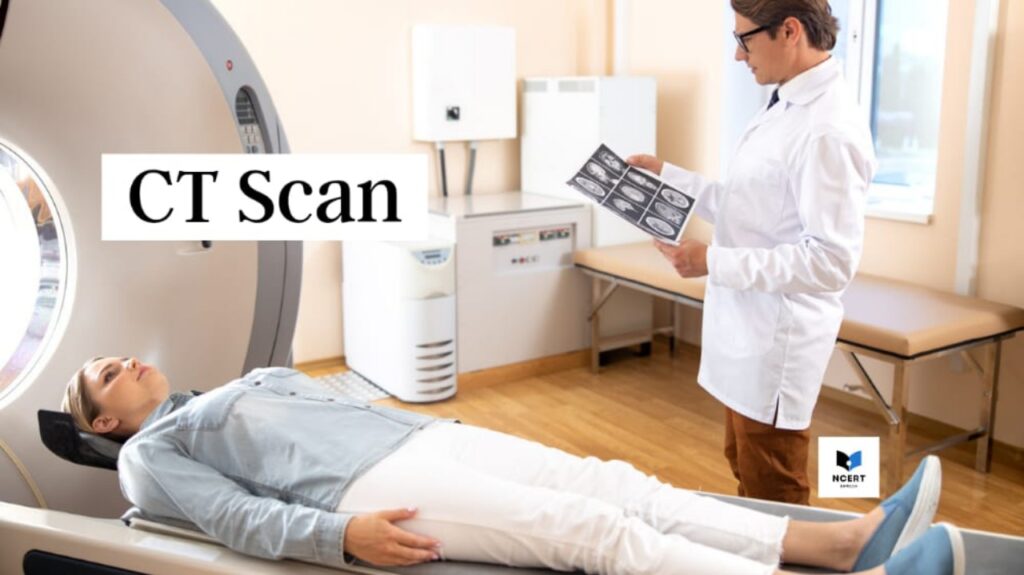Headache is a pain in any part of the head. Headaches can be one or both sides of the head. It starts from a point in the head and spreads into the whole head or it seems to be at a certain place.
This pain can appear as a sharp pain or a mild pain that produces a sensation in the head. Headaches can come gradually or suddenly and can last from an hour to several days.
Most people can feel much better by making lifestyle changes, giving the body enough rest, and taking pain relievers.
Not all headaches require a visit to the doctor, but sometimes headaches warn of a serious disorder. Be sure to tell your doctor if you have a sudden severe headache.
Get medical treatment right away if you have a head pain after a tremor or if you have a headache accompanied by a stiff neck, fever, confusion, fainting, or pain in the eyes or ears.
Types
There are different types of headaches. The International Headache Society divides headaches into two parts –
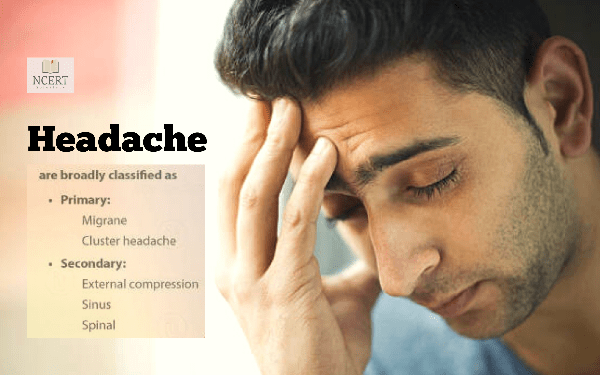
1. Primary headache
It is a spontaneous disease caused by hyperactivity or problems with pain-sensing structures inside the head which include blood vessels, muscles, and nerves in the head and neck. They are not caused by any other problem.
These may also occur in the chemical activity of the brain.
It includes:
- Migraine – Migraine is one of the most common forms of primary headache which can have a major impact on one’s life. According to the World Health Organization (WHO), migraine is the sixth leading cause of inability to work in worldwide. Migraines can last from a few hours to 3 to 4 days.
- Cluster headaches – They typically last from 15 minutes to 3 hours. They can occur suddenly from one to eight times per day, for a few weeks or months. The cluster headaches may cause no symptoms. This headache-free period can last from months to years.
- Tension Headaches – These are the most common form of primary headache. This type of pain usually starts gradually in the middle of the day. Tension headaches can be either episodic (periodic) or chronic (long-term). Episodic headaches usually remain for a few hours, but can last for several days. Severe headaches occur for 15 or more days in a month for a duration of at least 3 months.
2. Secondary headache
Its symptoms occur when another factor stimulates the nerves in the head. In other words, its symptoms can be attributed to a cause. A variety of factors can cause secondary headaches.
These include alcohol-induced
- Hangovers
- Brain tumors
- Blood clots
- Black cataracts
- Nighttime teeth grinding
- Overdose of pain medicine known as rebound headache
- Body movements
- Stroke.
It includes:
- Rebound headaches – Abuse or overuse of medication that treats the symptoms of the headache can lead to rebound headaches. These are common causes of secondary headaches. Rebound headaches usually start during the day and last throughout the day. They can be relieved with pain medicine, but these pains become very severe as soon as the effect of the medicine wears off.
- Thunderclap headaches – These are severe and sudden headaches. Thunderclap headaches are often referred to as “the worst headache of life”. It reaches its peak in less than a minute and lasts for more than 5 minutes. Often the conditions that threaten thunderclap headaches do not arise.
- Sinus headache – Pressure and swelling felt on the face, forehead, and behind the eyes due to inflammation or infection in the sinuses.
- Caffeine headache – It is basically, a withdrawal headache caused by stopping long-term use of caffeine.
- Cervicogenic headache – This is similar to tension-based headache and is characterized by muscle spasms and stiffness. This pain spreads from the neck. It may be associated with cervical (neck) disc disease.
- Stress-based – This is another form of tension headache. This pain is a result of the tension created.
- Spinal headache – That results from a spinal tap procedure (groin puncture). After the procedure, fluid may leak from the spinal column, causing severe headaches upon standing.
- Exertion Headache – It occurs due to excessive physical exertion. It could be a combination of tension headaches and dehydration.
- Allergy – Similar to sinus headaches, allergens in the environment irritate the nasal passages and sinus tissue, which can lead to headaches. An allergen can be defined as a substance that is responsible for causing an allergic reaction in the human body.
Symptoms
Headache symptoms do not require immediate medical attention. These symptoms include mild headache, which is usually accompanied by pain, pressure, or strain on both sides of the head above the eyebrows.
Symptoms include the following –
- Tension-based – Symptoms include pressure on both sides of the head and mild to moderate headache. The pain usually originates from the back of the head.
- Migraine type – This causes moderate to severe pain, often on one side of the head. It may be accompanied by vomiting and sensitivity to light and sound.
- Cluster – It is very severe, usually located on one side of the head around the eye or ear.
- Rebound headache – This can cause neck pain, restlessness, stuffy nose, and loss of sleep. It can cause a number of symptoms, and the pain may be different from day to day.
- Thunderclap headache – This is sudden, severe head Pain. People who experience thunderclap headaches should seek medical attention immediately. This pain is called the worst headache of life.
How to stop?
Headaches can be painful and debilitating. Identify any behavior that may be triggering your headache pattern.
- Medications – Headaches can occur if any pain medicine is stopped after taking it for a long time. This is called a rebound headache.
- Alcohol – Consumption of alcohol in excess can cause headaches and dehydration.
- Nicotine – The use of tobacco products can also cause headaches. Staying away from these products can reduce headaches as well as improve health significantly.
- Pay attention to what you eat and drink – if you have a headache, write down everything you ate and drank before that. If you see both timing and a similar pattern, stay away from those objects.
- Eat regularly – do not be irregular in food.
- Low Caffeine Consumption – Taking too much of any food or drink can aggravate migraines, but suddenly stopping eating or drinking them can also be the cause. Try to reduce your caffeine intake gradually.
- Get regular and adequate sleep – If you do not have a sleeping routine or you are very tired, then your chances of getting a migraine increase.
- Reduce your stress – There are many ways to do this. For this, you can exercise, pray, spend time with loved ones and do such things that make you happy.
- Maintain your energy – Eat regularly and don’t let the lack of water in you.
Test
How is IT diagnosed?
When you have a mild headache that doesn’t show any serious symptoms, testing isn’t necessary. Blood tests are usually not useful, as the results are almost always normal unless other symptoms are present. X-rays or CT scans are usually not necessary unless there is an injury.
Read: Packed cell volume: What is PCV in a blood test?
Even with a head injury, X-rays or scans are often not necessary. If your headaches are severe, your doctor will evaluate your symptoms and medical history. He will also do a physical examination of you. This information will help the doctor to determine the type and cause of it.
Tell your doctor if you have these symptoms along with head pain –
- that occurs frequently or is severe
- don’t let you sleep through the night
- have new patterns or changes in frequency
- are new or show new symptoms.
A doctor can diagnose a specific type of headache through the description of the condition, type of pain, and timing & pattern of pain. it appears to be complex, tests may be performed to rule out more serious causes.
Tests
If you are suffering from pain, your doctor may refer these tests for headaches, the test result will help him to understand the cause of the pain. These tests may include –
- Blood tests
- X-ray
- CT scan and MRI
Treatment
The most common forms of headache treatment are adequate rest and pain-relieving medications. A doctor can prescribe you the right preventive medicine depending on your condition and the causes of the pain.
It is important to follow the doctor’s advice, as overuse of pain relievers can lead to a relapse of headaches. Treatment of rebound headaches involves reducing or stopping the dose of painkillers.
Medicines
Treatment of the underlying problem stops the recurring headaches. When no other problem appears, treatment is focused on stopping the pain. When you are ready to start preventive therapy, your doctor may recommend –
- Antidepressants (tricyclic antidepressants) – Such as nortriptyline pamelor may be used to treat chronic headaches. These drugs can help treat problems that accompany severe daily headaches, such as depression, anxiety, and irregular sleep. Other antidepressants, such as selective serotonin reuptake inhibitors (SSRI), and fluoxetine (Prozac, Sarafem, and others) may help treat depression and anxiety but are no more effective than placebo for headaches.
- Beta blockers – These drugs, commonly used to treat high blood pressure, and are also important in preventing episodic migraines. Some beta blockers include atenolol, metoprolol (Lopressor, Toprol-XL) and propranolol (Inderal, Innopran XL).
- Anti-seizure medications – Some anti-seizure medications can be used to treat migraines as well as to prevent chronic daily headaches. For example – topiramate, divaprox sodium, and gabapentin etc.
- Nonsteroidal Anti – Inflammatory Drugs ( NSAID ) – Medicines such as naproxen sodium (Anaprox, Naprelan) may be helpful if you are taking other painkillers. These can be used periodically when the headache is more severe.
- Botulinum toxin – OnabotulinumtoxinA Botox injections provide relief for some people and can be a lifesaving option for those who cannot tolerate daily medications.
Note: The name of the above medications are given for informational purposes only. Self-use of any medication is prohibited strictly due to some risks involved. Always consult your nearest doctor to seek a right medical advice.
Self care / home remedies
Additionally, self-care can also be done to relieve headaches. There are several steps / home remedies that can be taken to reduce the risk and pain of headaches –
- Soak your head or neck with an ice bag or hot water bag, but avoid extreme temperatures.
- As far as possible, avoid stress. Make plans to relieve stress.
- Eat meals regularly. Try to keep the amount of sugar in the blood stable.
- A hot shower may help with a headache, although in some rare cases, the use of hot water can aggravate it. Exercising regularly and getting enough rest and regular sleep reduces stress and keeps a person healthy.
Alternative Treatments for Headaches
There are many treatments available for headaches, however, it is important to consult a doctor before exploring any treatment option.
- Acupuncture is an alternative medicine that can help relieve headaches.
- Cognitive Behavior Therapy
- Herbal and Nutritious Health Products
- Hypnosis
- Meditation or contemplation
Research does not confirm that all of these methods work.
Why do headaches happen again and again?
The two chronic daily headaches often have no identifiable cause. In many cases, the exact causes of chronic headaches are not known.
Health problems that can cause non-primary chronic daily headaches include –
- Swelling or other problems with blood vessels in and around the brain, including stroke
- Infections, such as meningitis
- The pressure inside the skull (intracranial)
- Brain Tumor
- Traumatic brain injury
This type of headache usually develops in people who have an “episodic headache disorder” (usually migraine or tension-type headache) and take a lot of pain medication. If you are taking pain medicines/over-the-counter medicines more than two days a week or nine days a month, the risk of getting frequent headaches increases.
FAQs
Why does a headache happen?
It occurs due to irritation or injury to the sensory structures. The sensory structures that can sense pain include –
- skull
- forehead
- the upper part of the head
- muscles of the neck and head
- major arteries and veins of the head
- sinuses, and
- the tissues that surround the brain.
Headaches can occur when there is pressure, spasm, tension, swelling, or irritation in these structures. The incidence of mild headaches is widespread among people who have some kind of disorder. Each person has his own different pattern.
What are the causes of Primary headaches?
It is a spontaneous disease that occurs immediately due to overactivity or problems in the pain-sensing structures in the head. This includes blood vessels, muscles, and nerves in the head and neck. They are caused by changes in chemical activity in the brain.
What are the causes of Secondary headaches?
Their symptoms appear when pain-sensing nerves in the head are stimulated by some other condition.
These are the factors that cause secondary headaches –
- Hangover caused by drinking alcohol
- Brain tumor
- Blood clots
- Bleeding in or around the brain
- Carbon monoxide poisoning
- Concussion
- Lack of water in the body
- Black cataract (Glaucoma)
- Fever
- Gnashing of teeth while sleeping at night
- Influenza
- Overdose of pain medication
- Nervousness
- Seizures
- The stress
- Back and neck muscle tension
- Exhaustion
- Medications (Medications made to relieve pain can actually cause headaches when the drug is stopped after prolonged use.)
- Increased intake of alcohol, caffeine, and sugar
Headaches can cause serious problems. It is important to consult a doctor if you have severe headaches on a regular or frequent basis.
READ THESE ALSO:
